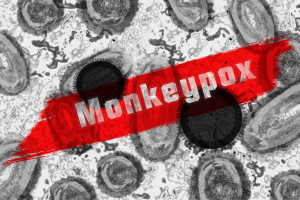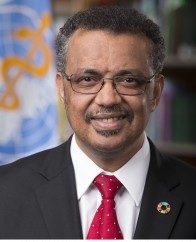
 By Dr Tedros Adhanom Ghebreyesus*
By Dr Tedros Adhanom Ghebreyesus*
I am deeply concerned by the spread of Monkeypox, which has now been identified in more than 50 countries, across five[World Health Organization] WHO regions, with 3,000 cases since early May [2022]. The [International Health Regulations (2005)] Emergency Committee shared serious concerns about the scale and speed of the current outbreak, noted many unknowns, and gaps in current data and prepared a consensus report that reflects differing views amongst the committee. Overall, in the report, they advised me that at this moment the event does not constitute a Public Health Emergency of International Concern, which is the highest level of alert WHO can issue, but recognized that the convening of the committee itself reflects the increasing concern about the international spread of Monkeypox. They expressed their availability to be reconvened as appropriate.
This is clearly an evolving health threat that my colleagues and I in the WHO Secretariat are following extremely closely. It requires our collective attention and coordinated action now to stop the further spread of the Monkeypox virus using public health measures including surveillance, contact tracing, isolation and care of patients, and ensuring health tools like vaccines and treatments are available to at-risk populations and shared fairly.
As the committee pointed out, monkeypox has been circulating in a number of African countries for decades and has been neglected in terms of research, attention and funding This must change not just for monkeypox but for other neglected diseases in low-income countries as the world is reminded yet again that health is an interconnected proposition.
What makes the current outbreak especially concerning is the rapid, continuing spread into new countries and regions and the risk of further, sustained transmission into vulnerable populations including people that are immunocompromised, pregnant women and children.
That is why it is urgent that all Member States, communities and individuals take the recommendations of the committee for stepped-up surveillance, improved diagnostics community engagement and risk communication, and the appropriate use of therapeutics, vaccines, and public health measures including contact tracing and isolation.
Since learning about the outbreak of Monkeypox on 7 May, WHO has issued clinical guidance and convened hundreds of scientists and researchers to speed up research and development into Monkeypox and the potential for new tools to be developed. WHO has also convened meetings of community members and organizations from the LGBTQI+ community so that health information and advice on protection measures are shared effectively around mass gatherings.
WHO calls on the Member States to collaborate, share information, and engage with affected communities so that public health safety measures are communicated quickly and effectively.
WHO calls on the Member States and manufacturers to work together to achieve the global public health goals of ensuring that affected populations receive medical countermeasures for monkeypox and these are used through standardized research and data collection for further evaluation of the clinical effectiveness of therapeutics and vaccine effectiveness evaluations.
I thank the scientists and public health experts from around the world who participated in the Emergency Committee. We will continue to monitor the situation closely, and follow their advice for continuing vigilance and possible reconvening in the coming days and weeks based on the evolution of the outbreak.
*Dr Tedros Adhanom Ghebreyesus is the Director-General of World Health Organization





